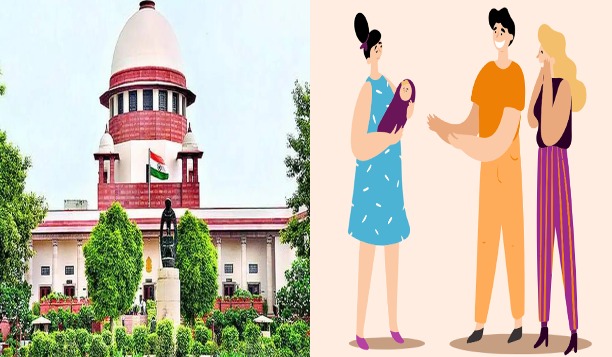
The Central Government told the Supreme Court on Wednesday that it is not permissible for a surrogate mother to provide her own gametes (ova or egg cells) for a child born through surrogacy under the Surrogacy Act.
In this regard, written submissions filed by the Central government stated the following:
• According to the Surrogacy Act, the surrogate mother cannot be genetically related to the child to be born through surrogacy.
• According to Section 4 (iii) (b) (III) of the Surrogacy Act, no woman shall act as a surrogate mother by providing her own gametes.
• The surrogate child must be genetically related to the intending couple or intending woman (widow or divorcee). This means that the child born through surrogacy to an intending couple should be formed of the intending couple’s own gametes, namely the sperm of the intending father and the oocytes (ovary cells that form the ova) of the mother. Similarly, the child born through surrogacy to an intending single mother (widow or divorcee) should be formed of the intending woman’s oocytes and sperms from a donor.
These submissions were made in response to a PIL pending before the Supreme Court challenging the ban on commercial surrogacy. Notably, one of the aspects being challenged is the prohibition on surrogate mothers from providing their own gametes for the surrogate child.
The petitioners have challenged the validity of the Surrogacy (Regulation) Act of 2021, as well as the Assisted Reproductive Technology (Regulation) Act of 2021 (ART Act), as well as the Rules framed under each Act.




